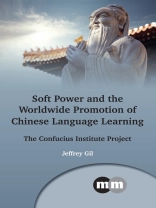‘The Confucius Institute Project’ – consisting of Confucius Institutes and Classrooms, the posting of Chinese language teachers to overseas schools and universities and the Chinese Bridge language competition – represents an attempt by China to extend its influence globally through the use of soft power. Facilitated by a rapidly increasing demand for Chinese language learning, it has established a presence across the globe and made valuable contributions to the learning and teaching of Chinese. However, this has not necessarily led to an increasingly positive view of China, either at a political or a societal level. Through an analysis of official documents, interviews with those involved, a survey of Chinese-language learners and a study of academic and media sources, the author evaluates the aims of the project, and discusses whether these aims are being met.
Daftar Isi
Tables
Conventions for Chinese Terms and Chinese Names
Acknowledgements
Chapter 1: Introduction: Language, Culture and China’s Rise in a Globalising World
Chapter 2: Chinese Culture Goes Global: Soft Power and the Promotion of Chinese Language Learning
Chapter 3: Mapping the Confucius Institute Project: High Extensity, Intensity and Velocity
Chapter 4: Evaluating the Confucius Institute Project: Impact at the State-to-State Level
Chapter 5: Evaluating the Confucius Institute Project: Impact at the Society-to-Society Level
Chapter 6: Conclusions and Implications
References
Interviews
Index
Tentang Penulis
Jeffrey Gil is a Senior Lecturer in the Department of Languages and Applied Linguistics, Flinders University, Australia. His research interests include Chinese foreign policy and Chinese as a foreign language.












